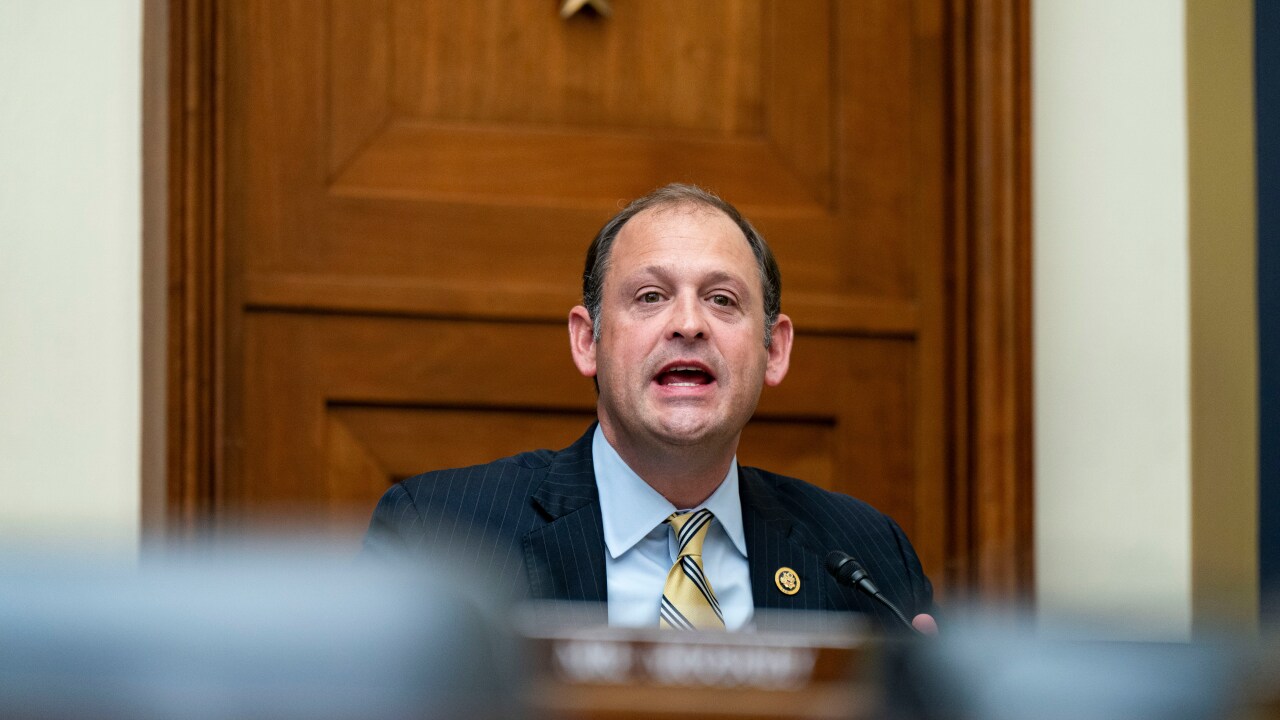WASHINGTON -- Advocates for the collection of state and local sales taxes from online purchases are hoping that the U.S. Supreme Court will act by June to take up and overturn a ruling by South Dakota's high court that invalidated that state's law requiring online retailers to collect such taxes.
The failure to collect online sales taxes nationwide resulted in an estimated $26 billion loss of revenue for state and local governments in 2015, according to the Government Finance Officers Association.
On Thursday the South Dakota Supreme Court overturned a 2016 state law requiring retailers that had more than $100,000 in sales or more than 200 transactions to collect sales tax on behalf of the state.
South Dakota Attorney General Marty Jackley told The Bond Buyer in an interview on Friday that he hopes to enlist attorneys general from other states in filing an appeal to the U.S. Supreme Court as soon as is practical.
“We obviously want to do thorough work on the petition, but that’s happening right now,’’ Jackley said. “Our goal and desire is to present this for the purposes of the October 2017 term and have a decision by next June.’’
The National Governors Association is expected to join the in the appeal by filing a friend-of-the-court brief, according to spokeswoman Elena Waskey.

Most petitions to the high court are turned down, but two of the nine justices on the court have said it needs to review the issue of online sales taxes in light of technological advance since it was last addressed in 1992.
That’s the year the Supreme Court ruled, in Quill Corp. v. North Dakota, that sales tax collections for online sales could only be required if a retailer had a physical presence in a state.
“The result has been a startling revenue shortfall in many states, with concomitant unfairness to local retailers and their customers who do pay taxes at the register,’’ Justice Anthony Kennedy wrote in a 2015 concurring opinion that sent a Colorado case back to a lower court.
The Colorado case, Direct Marketing Association v. Brohl, executive director, Colorado Department of Revenue, involved a state requirement that online retailers notify customers of the state’s use tax and send the state information about online purchases.
The 9-0 Supreme Court ruling in that case, which favored the association, was seen as a victory for online retailers, according to Scotusblog, an online blog of the high court, but Kennedy took the position that the 1992 Quill decision should be overturned.
“Given these changes in technology and consumer sophistication, it is unwise to delay any longer a reconsideration of the court’s holding in Quill,’’ Kennedy wrote. “A case questionable even when decided, Quill now harms states to a degree far greater than could have been anticipated earlier.’’
Justice Neil Gorsuch, who was confirmed by the U.S. Senate earlier this year, was involved in the same Colorado case at the federal appellate court level. In writing his opinion, Gorsuch referred to the Quill decision as a “precedential island’’ that will “wash away with the tides of time.’’
GFOA would prefer a legislative solution from Congress and the Trump administration.
“We’ve gotten some positive vibes from the White House that state and local governments need to catch up to the 21st century and collect sales taxes for transactions that are paid for online,’’ said Emily Brock, director of GFOA’s federal liaison center.
Treasury Secretary Steven Mnuchin earlier this summer suggested that enabling state and local governments to collect sales tax on internet purchases could bring them an infusion of revenue to help fund infrastructure.
“There’s two ways of going forward,’’ Brock said. “Either the Supreme Court takes this appeal from the South Dakota Supreme Court or legislation is advanced in Congress. Either way, GFOA stands ready to support the cause.’’
Brock said the legislative approach would “more meticulously say how the online sales taxes will be collected whereas a Supreme Court decision would be more like yes that should and they ought to.’’
The South Dakota attorney general said states have been waiting unsuccessfully for congressional action.
“Congress has since 1992 to address this very important issue that is affecting state coffers, Main Street businesses here in South Dakota and jobs,’’ said Jackley. “I acknowledge that Congress has an ability to fix it and the U.S. Supreme Court has an ability to fix it. It’s just that Congress has chosen not to.’’





